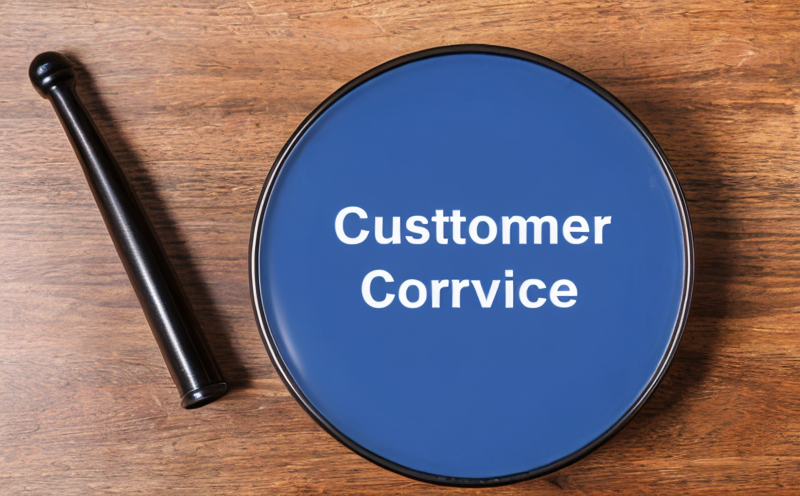Customer Service and Consumer Protection Standards: Understanding Your Rights
As a consumer, its essential to know your rights when dealing with businesses and organizations that provide goods or services to you. Good customer service is not just about being friendly and polite; its also about ensuring that you receive the quality of service you expect from a business. In this article, well explore the importance of customer service standards, consumer protection laws, and what you can do when dealing with a company that fails to meet your expectations.
What are Customer Service Standards?
Customer service standards refer to the guidelines or benchmarks that businesses use to measure their performance in providing good customer service. These standards typically include things like:
Responding promptly to customer inquiries and complaints
Providing clear and concise information about products or services
Resolving issues quickly and efficiently
Being respectful, courteous, and professional in all interactions with customers
Businesses that fail to meet these standards can harm their reputation and lose the trust of their customers. On the other hand, companies that prioritize customer service tend to build strong relationships with their clients, leading to increased loyalty and repeat business.
Consumer Protection Laws: What You Need to Know
In addition to customer service standards, there are also consumer protection laws in place to safeguard your rights as a consumer. These laws vary from country to country, but they typically cover areas such as:
Product safety and labeling
Credit and debt collection practices
Advertising and marketing regulations
Warranty and guarantee requirements
Here are some key points about consumer protection laws:
Product Safety: Businesses must ensure that their products meet certain safety standards. This includes providing clear warnings and instructions for use, as well as ensuring that products are designed and manufactured with safety in mind.
Credit and Debt Collection: Companies must follow fair credit practices when extending credit to customers. This includes disclosing all terms and conditions of the loan or credit agreement, as well as being transparent about interest rates and fees.
What Can You Do If a Company Fails to Meet Your Expectations?
If you feel that a business has failed to meet your expectations, there are several steps you can take:
1. Contact the company directly: Reach out to the customer service department or contact the salesperson who sold you the product or service. Explain your concerns and see if they can resolve the issue.
2. File a complaint with a regulatory agency: Many countries have regulatory agencies that oversee consumer protection laws. These agencies can help mediate disputes between consumers and businesses.
3. Seek mediation: Some companies offer mediation services to help resolve disputes. This can be a good option if youre unable to resolve the issue directly with the company.
4. Consider small claims court: If the amount in dispute is relatively small, you may want to consider filing a claim in small claims court.
QA: Additional Details and Answers
Q: What is the difference between customer service standards and consumer protection laws?
A: Customer service standards refer specifically to the guidelines that businesses use to measure their performance in providing good customer service. Consumer protection laws, on the other hand, are broader regulations that safeguard your rights as a consumer.
Q: What if Im unsure about whether a company is following consumer protection laws?
A: If youre unsure about whether a company is following consumer protection laws, its best to err on the side of caution and contact a regulatory agency or seek advice from a lawyer.
Q: Can I sue a company for failing to meet customer service standards?
A: While it may be possible to sue a company for failing to meet customer service standards, this can be a complex and costly process. Its often better to try to resolve issues through mediation or by contacting the company directly.
Q: What if Ive already paid for a product or service that Im not satisfied with?
A: If youve already paid for a product or service that youre not satisfied with, it may be more difficult to get a refund. However, you can still try contacting the company and explaining your concerns. They may offer a partial refund or exchange.
Q: Can I report a company for violating consumer protection laws?
A: Yes, if you suspect that a company is violating consumer protection laws, you should report it to a regulatory agency. This can help protect other consumers from similar issues in the future.
Q: What are some common mistakes businesses make when dealing with customer complaints?
A: Some common mistakes businesses make include:
Failing to listen carefully to customers concerns
Being dismissive or unresponsive to customer inquiries
Making promises that cant be kept
Ignoring or downplaying legitimate complaints
Q: Can I file a complaint about a companys website or online sales practices?
A: Yes, if you have concerns about a companys website or online sales practices, you can contact a regulatory agency or file a complaint directly with the company.
Q: What are some tips for resolving disputes with companies effectively?
A: Some tips for resolving disputes with companies include:
Staying calm and professional
Being clear and concise in your communication
Keeping records of all correspondence and interactions
Seeking advice from a lawyer or regulatory agency if necessary
By understanding customer service standards, consumer protection laws, and knowing what steps to take when dealing with a company that fails to meet your expectations, you can protect yourself as a consumer and ensure that businesses provide the quality of service you deserve.

































